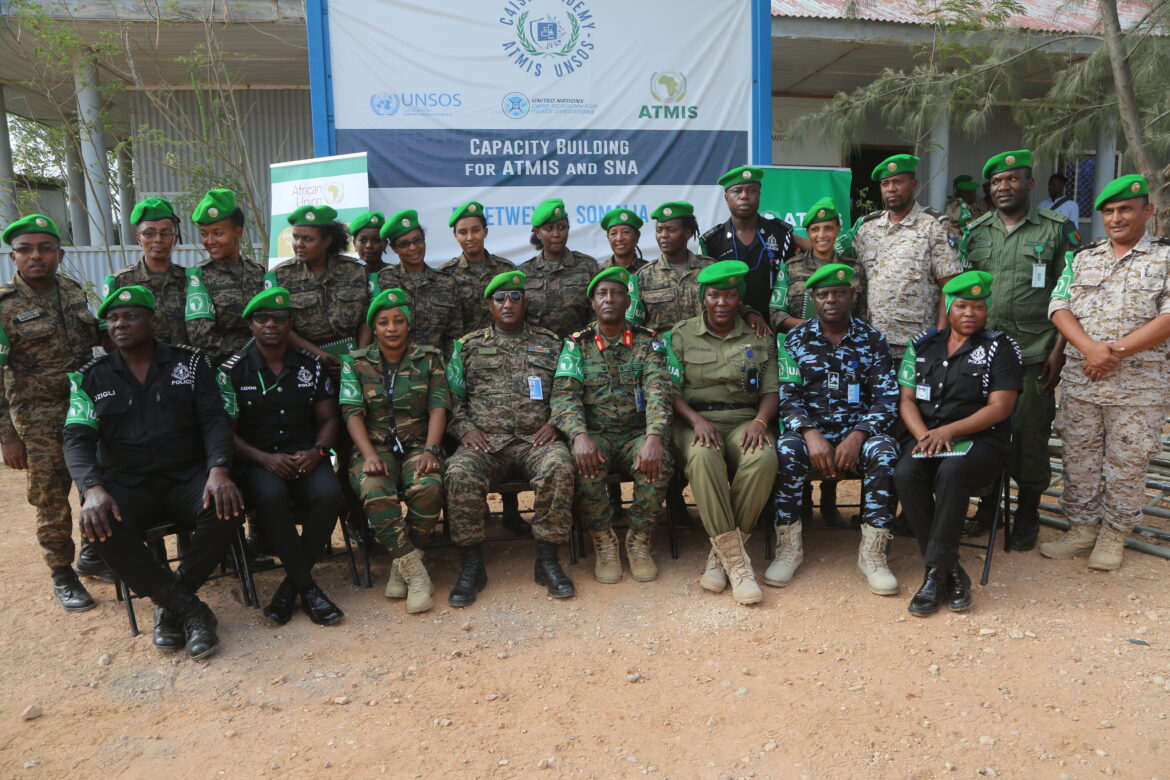Beletweyne, 30 September 2024 – Twenty-five military and police officers from the African Union Transition Mission in Somalia (ATMIS) have completed training on civilian protection and human rights and civil military coordination.
The five-day training held at Sector Four Headquarters in Beletweyne, Hirshabelle State, enhanced officers skills for safeguarding civilians, promoting human rights and improving community relations.
ATMIS Sector Four Commander, Col. Said Waberi, urged participants to utilize their new knowledge to effectively protect civilians during operations.
“Trainings such as this are important for enabling you to win the hearts and minds of the local population. I urge you to put into practice what you have learned to ensure success of the ATMIS mandate,” said Col. Waberi at the closing ceremony.
ATMIS Senior Protection and Human Rights Officer and lead trainer, Ms. Gloria Jaase, said training ATMIS forces on critical areas affecting civilians is a core mission mandate.
“One of our key tasks as ATMIS is to train and build the capacity of ATMIS Uniformed personnel to the protection of civilians. This training on POC, IHL, IHRL, and Civil Military Coordination is one of the initiatives to operationalise the African Union Compliance and Accountability Framework (AUCF),” she said.
“The training was to enhance our troops understanding of human rights, protection of civilians, and International Humanitarian Law and Civil-Military Coordination. This knowledge would enable them to discharge their duties more effectively,” said ATMIS Sector Four Humanitarian Liaison Officer, Jackson Robert.
An Individual Police Officer and ATMIS Sector Four Gender Focal person, Constable Vivian Anena, said the new knowledge would help the troops to professionally discharge their duties.
“We learnt about various activities essential for improving the safety and security of the population and vulnerable groups. The training emphasised ensuring that the civilian rights are respected and protected. We also looked at the principles of protection of civilians, which include zero tolerance to sexual violence and the importance of respecting people’s dignity, integrity and confidentiality,” noted Constable Anena.
Participants were drawn from ATMIS Djibouti and Ethiopian National Defence Forces contingents, Individual Police Officers (IPOs) and Ghana Formed Police Unit.
They covered a wide range of topics including the protection of vulnerable groups such as women and children, International Humanitarian Law, International Human Rights law, prevention of sexual exploitation and abuse, Civil Military Coordination concepts, principles and guidelines, the use of armed escorts for humanitarian convoys and Civilian Casualty Tracking, Analysis, and Response (CCTARC).















